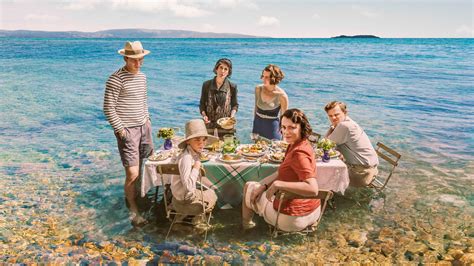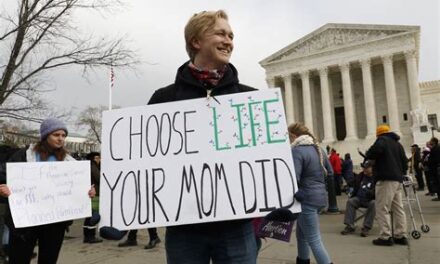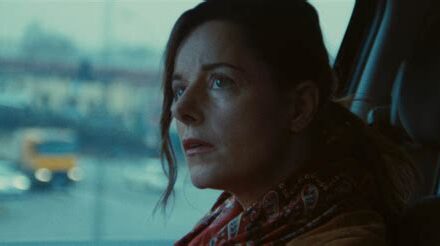The Durrells, or, as PBS has it, ‘The Durrells in Corfu‘ will wind down its third season over the next two Sundays on Masterpiece Theatre. Earlier seasons are available now on Amazon Prime. If you haven’t seen it, you may have trouble understanding its appeal. Based very loosely on naturalist Gerald Durrell’s book My Family and Other Animals (1956), the series chronicles the adventures or, more often than not, misadventures of a family that, out of economic necessity, emigrates from England to the Greek island of Corfu in the mid-1930s. There they rub elbows with the locals, mostly Greeks, with an occasional European fellow émigré or, rarer still, a Turk was thrown into the mix, and quickly, or so it seems, become enamored with the place.
While Gerry, the pre-pubescent Gerald (Milo Parker), hunts the fields and woods for lizards, snakes, and birds, Larry (Josh O’Conner), the oldest of the three Durrell sons, pecks away furiously at his typewriter yearning to be a successful novelist—as, indeed, he became as the Lawrence Durrell of The Alexandria Quartet. Middle brother Leslie (Callum Woodhouse) stalks small game in the neighborhood and, much like Larry, flirts with the Grecian beauties he finds in town. Sister Margo (Daisy Waterstone) alternately dreams of boys and of becoming a Greek Orthodox nun, the latter aspiration pursued without an iota of religious belief, much less true vocation. And mother Louisa (Keeley Hawes) tries desperately to hold the family together and feed them on her deceased husband’s pension.
By the standards of our superhero movie and ‘Game of Thrones’ TV cultures, The Durrells may sound dull, but it is a comedy, which means it depends on the characters and community. And what more of such ingredients does one want? Corfu itself contains more than its share of curious inhabitants: Spiros (Alexis Geogoulis), the friendly gentleman who taxis the family and just about everyone else around the island; Theo (Yorgos Karamihos), a cultivated naturalist who takes Gerry under his wing; very briefly Captain Creech (James Cosmo), a drunken English sailor who tries, mercifully without success, to eat, drink, and, to put it bluntly, grope his way into Louisa’s affections; and Aunt Hermione (Barbara Flynn), a snooty, disapproving relative who barges her way into the Durrell household only to fall in love with Corfu and go native.
Are there love interests? Aside from Margo’s failure with an English lad and her later flirtation with a Turk, and Leslie’s disastrous romancing of three girls simultaneously (one of whom he gets pregnant), the main romantic entanglements involve Louisa. As noted earlier, Captain Creech gets nowhere fast, but Sven is another matter. A resident of Corfu for some years, Sven (Ulric von der Esch) enters the action in season one as a veritable Apollo or, given his origin, a Thor. Either way, he seems taken with Lousia as surely as she is with him. As proof, she even tolerates his accordion playing. A marriage, the pith, and marrow of comedy appear inevitable, but everything goes kaput when Larry spots some compromising pictures in Sven’s photo album. Turns out Thor is a flamin’ queer.
However funny ‘The Durrells’ is, the discovery does not make one smile. Perhaps comedies of this quirky sort need moments of disappointment to remind us that life isn’t all laughter and high jinks; Shakespeare might have said as much. Sven wants to go ahead with the marriage, just to try a new kind of life, but Louisa will have none of it. Sounding more like a progressive woman of today than a matron of the thirties, she informs him he must embrace who he is.
Although one may be dead certain such bilge charms the socks off the folks at PBS and ITV, these politically correct anachronisms sound a hollow note. When Leslie’s amorous life becomes notorious, all Louisa can tell him is to protect himself and offers no demurral at Larry’s suggestion that Leslie uses “French letters” (condoms). Regarding Margo, her attitude is feminist-lite all the way. On these happily rare occasions, Keeley Hawes’ Louisa, usually nervously comedic, sounds as clueless and preachy as her 21st-century “sisters,” and as boring.
As for Corfu itself, its splendors catch the eye vividly: skies rarely anything but cloudless, waters always blue, and cliffs alabaster. Amid the various beauties, the Durrells’ derelict villa grows steadily homier although, with the families’ undeniable poverty, constantly in need of paint and plaster. Gerry’s menagerie expands daily, Larry’s stories find publishers, and the family becomes a local fixture. And though I’ll admit I’ve never regarded myself as a great lover of sun, sand, and sea, the one episode this year that takes Louisa and Larry back to gloomy, rainy England left me just a little anxious. During their stay, Larry situates himself amid a Bohemian colony of writers—Henry Miller among them—and I gasped to myself: Will he be foolish enough to stay? He doesn’t. And when his mother and he return to Corfu, I found myself thoroughly relieved that they’d come home to paradise.
Has ‘The Durrells’ held up well over three years? In some ways, no, but that’s to be expected. A comedy that relies chiefly on the eccentricities of its characters—something readers of Fielding and Dickens know intimately—will pale slightly as the audience gets to know the principals. So it has with ‘The Durrells.’ The series has grown less surprisingly delightfully and more predictably entertaining with each season. (Well, more or less predictably: it’s still ‘The Durrells.’)
Anyhow, season three has turned out better than I feared after a rickety opening episode. The writers have smoothed out the wrinkles, and the family has carried on in their accustomed way. A fourth and, by all accounts, final season has been announced, and when it airs, I’ll be watching, vicariously soaking up the sun on the terrace of my decaying Mediterranean villa, and wondering what on earth the Durrells will do next.














